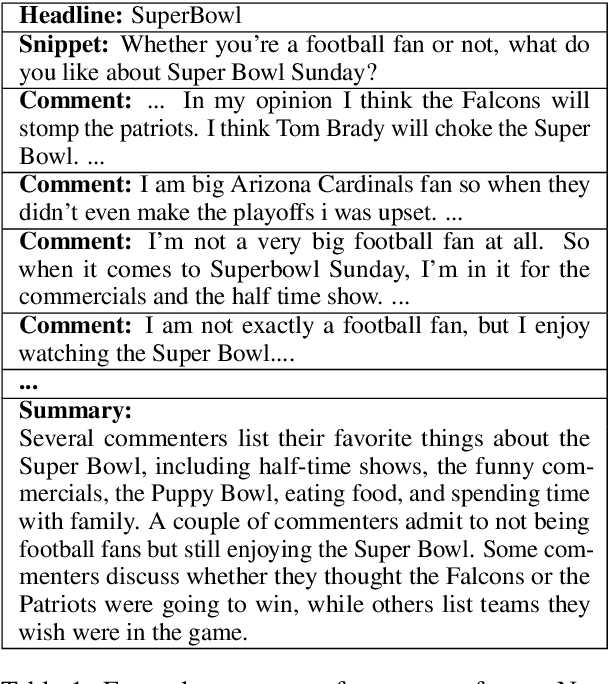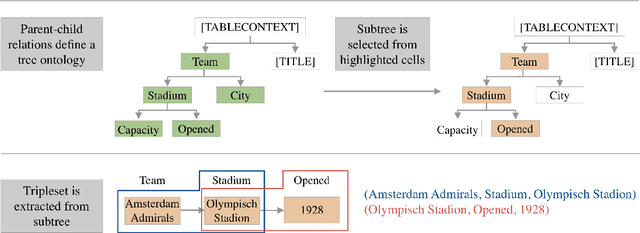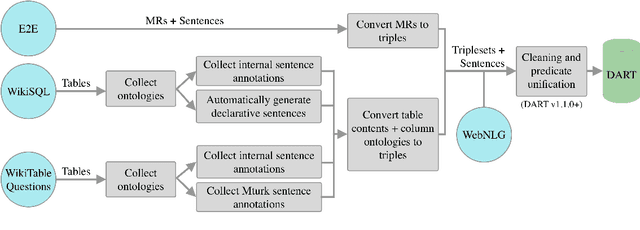Faiaz Rahman
ConvoSumm: Conversation Summarization Benchmark and Improved Abstractive Summarization with Argument Mining
Jun 01, 2021



Abstract:While online conversations can cover a vast amount of information in many different formats, abstractive text summarization has primarily focused on modeling solely news articles. This research gap is due, in part, to the lack of standardized datasets for summarizing online discussions. To address this gap, we design annotation protocols motivated by an issues--viewpoints--assertions framework to crowdsource four new datasets on diverse online conversation forms of news comments, discussion forums, community question answering forums, and email threads. We benchmark state-of-the-art models on our datasets and analyze characteristics associated with the data. To create a comprehensive benchmark, we also evaluate these models on widely-used conversation summarization datasets to establish strong baselines in this domain. Furthermore, we incorporate argument mining through graph construction to directly model the issues, viewpoints, and assertions present in a conversation and filter noisy input, showing comparable or improved results according to automatic and human evaluations.
DART: Open-Domain Structured Data Record to Text Generation
Jul 06, 2020



Abstract:We introduce DART, a large dataset for open-domain structured data record to text generation. We consider the structured data record input as a set of RDF entity-relation triples, a format widely used for knowledge representation and semantics description. DART consists of 82,191 examples across different domains with each input being a semantic RDF triple set derived from data records in tables and the tree ontology of the schema, annotated with sentence descriptions that cover all facts in the triple set. This hierarchical, structured format with its open-domain nature differentiates DART from other existing table-to-text corpora. We conduct an analysis of DART on several state-of-the-art text generation models, showing that it introduces new and interesting challenges compared to existing datasets. Furthermore, we demonstrate that finetuning pretrained language models on DART facilitates out-of-domain generalization on the WebNLG 2017 dataset. DART is available at https://github.com/Yale-LILY/dart.
 Add to Chrome
Add to Chrome Add to Firefox
Add to Firefox Add to Edge
Add to Edge